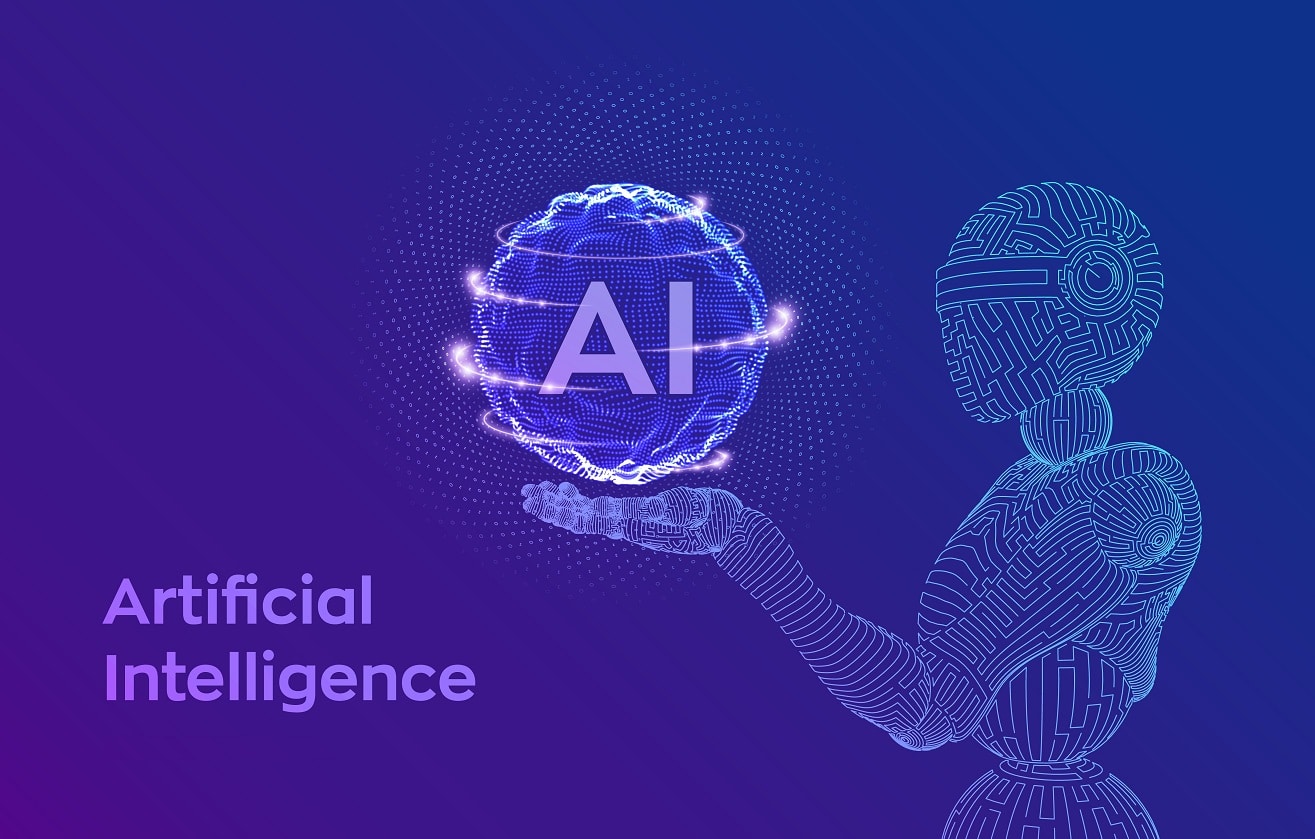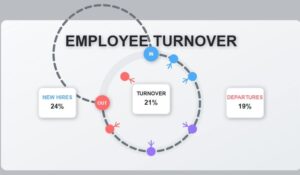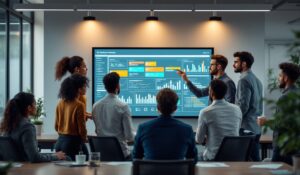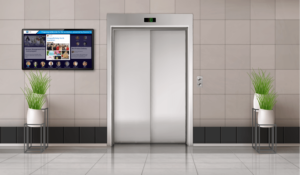Artificial Intelligence (AI) is rapidly advancing, revolutionizing various industries and transforming the way we live and work. As we look toward the future, it’s essential to understand the key AI trends that will shape our world. In this blog, we will explore the exciting AI trends that are set to drive innovation, redefine industries, and impact our daily lives. Let’s delve into the future of AI!
What is Artificial Intelligence?
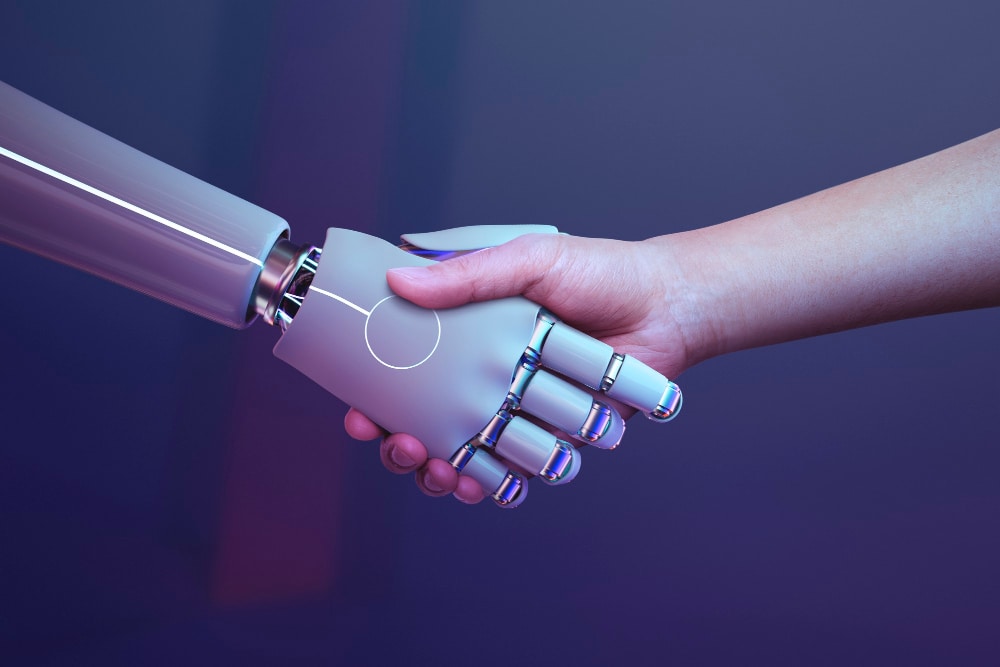
AI systems are designed to analyze and interpret large amounts of data, recognize patterns, and make predictions or recommendations based on the information processed. They can adapt and improve their performance over time through iterative learning processes. AI has the potential to automate repetitive tasks, provide insights from complex datasets, and augment human capabilities in various fields.
There are different types of AI ranging from narrow or weak, which are designed to exhibit human-level intelligence across multiple domains. While narrow AI is prevalent today and used in various applications such as voice assistants, image recognition, and recommendation systems, the development of general AI remains a subject of ongoing research.
Overall, AI is a rapidly evolving field with significant implications for industries, society, and individuals. Its advancements have the potential to revolutionize various sectors, improve decision-making processes, drive innovation, and shape the future of technology. However, it also raises important ethical and societal considerations that need to be addressed to ensure responsible and beneficial deployment.
How does Artificial Intelligence impact every industry?
Artificial Intelligence has a profound impact on every industry, transforming the way businesses operate, make decisions, and deliver products and services.
AI in Healthcare
AI enables more accurate diagnosis and treatment planning through medical imaging analysis, predictive analytics for disease prevention, and personalized medicine. It improves patient care, drug discovery processes, and operational efficiency in healthcare institutions.
Finance and AI
AI automates financial processes, fraud detection, and risk assessment. It enhances customer experience through personalized recommendations and chatbots for customer support. The algorithms also enable trading automation and portfolio management in the financial sector.
AI in Retail and E-commerce
AI improves customer experience through personalized recommendations, chatbots for customer service, and virtual shopping assistants. It optimizes inventory management, demand forecasting, and supply chain logistics, leading to more efficient operations and improved sales.
Artificial Intelligence in Manufacturing
AI enhances manufacturing processes through predictive maintenance, quality control, and supply chain optimization. It enables autonomous robots for tasks such as assembly, packaging, and warehouse operations, improving productivity and reducing costs.
Transportation and Logistics AI
AI enables autonomous vehicles, route optimization, and real-time tracking in transportation and logistics. It improves safety, reduces fuel consumption, and enhances supply chain visibility and efficiency.
Energy and Utilities with Artificial Intelligence
AI optimizes energy distribution, predicts maintenance needs, and improves grid management in the energy sector. It enables energy efficiency analysis, demand response systems, and renewable energy integration.
Artificial Intelligence in Education
AI enhances personalized learning experiences through adaptive learning platforms, intelligent tutoring systems, and educational analytics. It improves administrative processes and facilitates efficient content creation and delivery.
Artificial Intelligence in Entertainment and Media
AI powers content recommendation systems, personalized advertising, and content creation tools in the entertainment industry. It enables advanced video and audio analysis, natural language processing, and virtual reality experiences.
These are just a few examples, but the impact of AI extends to almost every industry. It streamlines processes, enhances decision-making, improves customer experiences, increases efficiency, and unlocks new possibilities for innovation and growth. However, it also poses challenges related to data privacy, ethical considerations, and workforce transformation, which need to be carefully addressed for the responsible and beneficial integration of futuristic tech in various sectors.
How does Artificial Intelligence impact every individual?
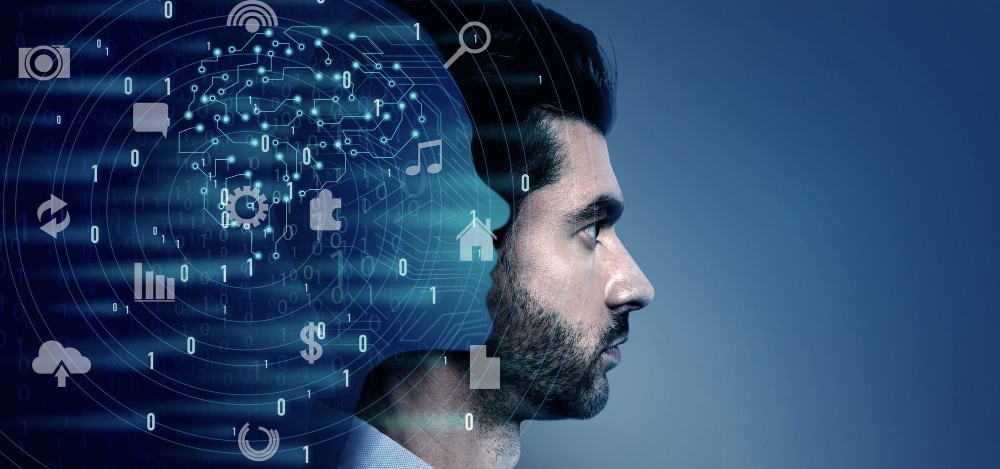
Artificial Intelligence impacts every individual in various ways, both directly and indirectly.
AI Personal Assistants
AI-powered personal assistants like voice assistants (e.g., Siri, Alexa) and chatbots provide convenience by assisting with tasks, answering questions, and providing recommendations. They can schedule appointments, set reminders, play music, and provide real-time information.
AI Personalized Experiences
AI enables personalized experiences in various domains. For example, the algorithms power recommendation systems in streaming services, e-commerce platforms, and social media, suggesting content, products, and connections tailored to individual preferences.
Healthcare and Wellness
AI-driven healthcare applications improve individual well-being by enabling early disease detection, personalized treatment plans, and remote patient monitoring. Wearable devices equipped with the algorithms can track health data, provide fitness recommendations, and detect anomalies.
Education with AI
AI technologies enhance individual learning experiences through adaptive learning platforms, virtual tutors, and intelligent feedback systems. It can personalize educational content and pacing, identify areas for improvement, and provide tailored guidance to support individual learning goals.
Accessibility
AI contributes to accessibility by assisting individuals with disabilities. For instance, visual recognition helps people with visual impairments navigate their surroundings, while natural language processing allows individuals with speech impairments to communicate using text-to-speech technology.
Safety and Security
AI enhances individual safety through advanced security systems, including facial recognition, intrusion detection, and video analytics. The algorithms can analyze patterns and detect potential risks, alerting individuals to potential threats and improving overall security.
Workforce Transformation
AI impacts individuals in the workforce by automating repetitive and mundane tasks, freeing up time for more complex and creative work. It can also augment human capabilities by providing insights and recommendations, enabling individuals to make more informed decisions.
Personal Data Privacy
AI’s impact on individuals raises concerns about data privacy and security. As it relies on data for training and analysis, individuals need to be mindful of how their personal data is collected, stored, and used to ensure privacy protection.
It is important to note that while AI offers numerous benefits to individuals, there are also ethical considerations regarding data privacy, algorithmic bias, and the potential impact on employment. Responsible development and deployment of AI technologies are crucial to ensure that individuals can fully harness the benefits while mitigating potential risks and challenges.
Overview of AI in Employee Nurturing Platforms
AI is increasingly being integrated into employee nurturing platforms to enhance engagement, productivity, and overall employee experience. Platforms like HubEngage will soon leverage the technology to provide personalized and data-driven solutions for talent development, performance management, and employee well-being. Here’s an overview of how the new man-made tech is all set to transform employee nurturing platforms and the benefits they bring to organizations:
Personalized Learning
AI algorithms will analyze employee data, such as skills, learning preferences, and performance, to deliver personalized learning experiences. They will also recommend relevant training materials, courses, and development opportunities tailored to each employee’s needs, helping them acquire new skills and stay updated in a rapidly evolving work environment.
Performance Management
AI-powered platforms will assist in performance management by collecting and analyzing data on employee performance. They will provide real-time feedback, identify areas for improvement, and offer actionable insights to managers and employees. The algorithms would detect patterns, trends, and anomalies in performance data, facilitating fair and objective evaluations.
Skill Gap Analysis
AI will help identify skill gaps within an organization by analyzing employee skills, job requirements, and industry trends. Enabled platforms will generate comprehensive reports and recommendations for upskilling and reskilling initiatives, enabling organizations to align their talent development strategies with evolving business needs.
Employee Engagement and Well-being
AI-run platforms will enhance employee engagement and well-being by providing personalized recommendations and support. These platforms can then analyze employee sentiment, feedback, and behavioral data to identify potential areas of improvement. The algorithms will suggest well-being initiatives, stress management techniques, and work-life balance strategies, fostering a positive and healthy work environment.
Talent Acquisition and Recruitment
AI-driven platforms (like HubEngage, soon) will streamline and enhance the talent acquisition processes. AI algorithms will analyze resumes, screen candidates, and even conduct initial interviews using natural language processing and machine learning techniques. These platforms will also help reduce bias, improve candidate matching, and enhance the efficiency of the recruitment process.
Data Analytics and Insights
AI-enabled platforms will leverage advanced analytics to generate meaningful insights from large volumes of employee data. These insights will help organizations make data-driven decisions related to talent management, workforce planning, and employee development. The algorithms will also identify patterns, correlations, and predictive trends, enabling organizations to optimize their strategies and drive better outcomes.
Virtual Assistants and Chatbots
AI-powered virtual assistants and chatbots will provide employees with instant access to information, support, and guidance. These AI-driven assistants will handle routine inquiries, provide on-demand training, and assist with various HR-related tasks. Further, they will enhance employee self-service capabilities and reduce the administrative burden on HR departments.
In summary, man-made intelligence will soon revolutionize employee nurturing platforms by offering personalized learning, performance management, engagement, and well-being solutions. These platforms will leverage data analytics, machine learning, and natural language processing to provide tailored experiences and valuable insights. By integrating AI into employee nurturing platforms, organizations can create a more engaging, productive, and supportive work environment, ultimately fostering the growth and development of their workforce.
Key Takeaways of Current AI Capabilities and What’s in Store for the Future?
- AI is transforming industries by automating tasks, improving efficiency, and enabling data-driven decision-making.
- It is expected to continue advancing rapidly, with innovations in areas like deep learning, reinforcement learning, and computer vision.
- Technologies, such as machine learning and natural language processing, are being used in various applications, including healthcare, finance, retail, and transportation.
- The technology will become more widespread across industries, enabling greater automation, process optimization, and personalized experiences.
- It enables personalized experiences through recommendation systems, virtual assistants, and adaptive learning platforms.
- It will play a significant role in emerging technologies such as autonomous vehicles, robotics, and the Internet of Things (IoT).
- It has the potential to enhance individual well-being, improve healthcare outcomes, and increase accessibility for people with disabilities.
- Ethical AI frameworks and regulations will be crucial to guide the development and deployment of AI systems, ensuring transparency, fairness, and accountability.
- AI’s impact on the workforce will require upskilling and reskilling efforts to adapt to the changing job landscape and foster a harmonious collaboration between humans and machines.
Overall, the future of AI holds immense potential to revolutionize industries, improve quality of life, and tackle complex challenges. However, responsible and ethical considerations must be prioritized to maximize the benefits while addressing potential risks and ensuring a positive and inclusive future.
Check out the top app featuring Intranet communications soon to be powered by Artificial Intelligence.

